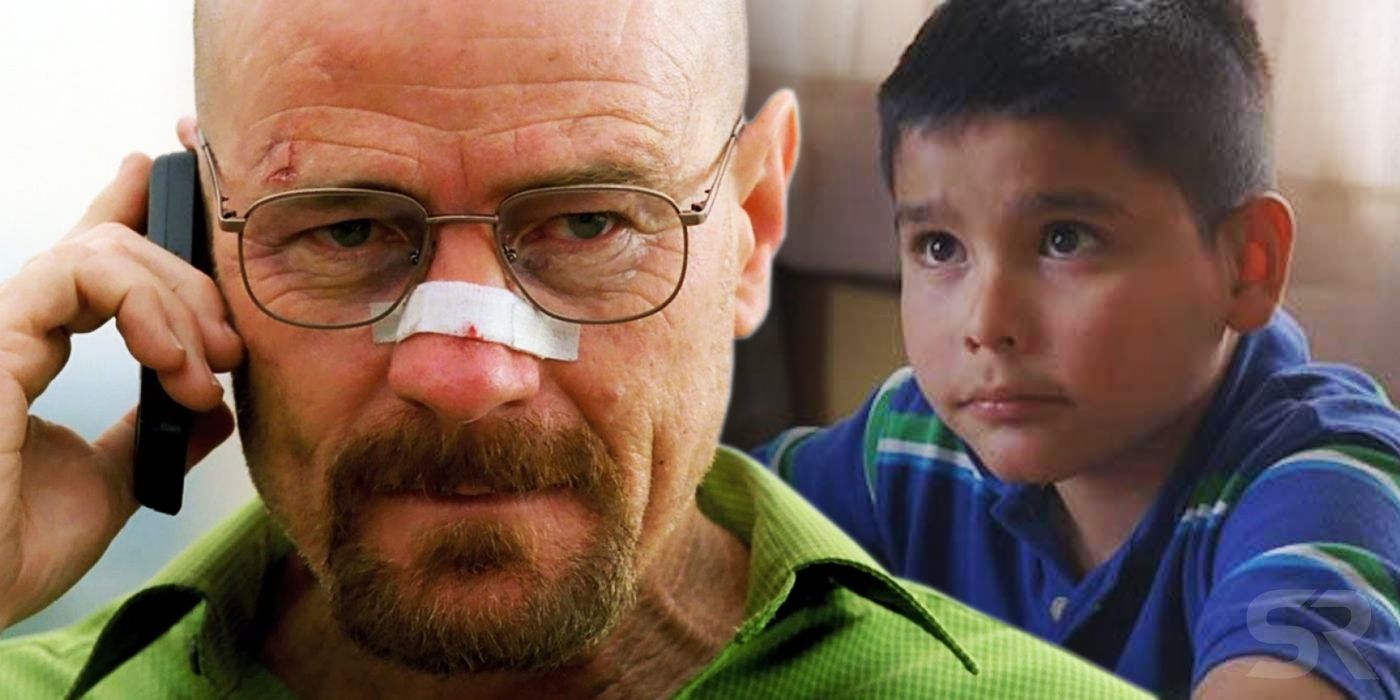
Walter White did many awful things during his arc in Breaking Bad, but there was a particular moment that eliminated any chance of redemption. Bryan Cranston played the high school science teacher turned drug kingpin for all five seasons of Vince Gilligan's series. Though the figure was initially presented as a protagonist, Walt quickly turned into the quintessential antihero. He then made a series of decisions, propelling his full transformation in Heisenberg. One action, however, made Walt completely unredeemable.
At the onset of Breaking Bad, Walt made the difficult decision to cook meth in an effort to provide for his family. Due to his recent cancer diagnosis, Walt worried about how his wife and son would survive financially if he weren't around. With the help of his former student, Jesse Pinkman (Aaron Paul), Walt turned to the development and distribution of drugs. Based on the purity of his signature "Blue Sky" meth, Walt's empire drew the attention of the cartel. He and Jesse fell deeper and deeper into the drug trade, which had dangerous consequences. In time, it was made clear Walt wasn't continuing his empire for his family, but instead, for selfish reasons connected to his thirst for power. Walt's "I am the one who knocks!" line in season 4 seemingly represented the moment he fully evolved into Heisenberg, but his most heinous act would come a few episodes later.
When analyzing the worst things Walt ever did in Breaking Bad, some of the treatment of his family would come to mind. Aside from putting his wife and kids in danger, he inadvertently got his brother-in-law Hank (Dean Norris) killed. Some would argue Walt was beyond redemption when he let Jane die from an accidental overdose. While that was a despicable decision that had severe consequences, he carried guilt for his involvement. The moment Walt truly became irredeemable was when he poisoned young Brock Cantillo (Ian Posada) toward the end of season 4 since it was completely intentional. The character wasn't against making a power move, even if it meant hurting an innocent party in the process. That said, it was assumed Walt wouldn't cross the line by harming a child, but he convinced viewers otherwise.

In season 4's "End Times," it was revealed Brock was in the hospital with a serious flu-like illness. As the child was the son of Jesse's girlfriend, Jesse assumed Brock was intentionally poisoned with the ricin intended for his business associate, Gus Fring (Giancarlo Esposito). In reality, Walt poisoned Brock with a lily of the valley plant to manipulate Jesse against Gus. Gilligan explained the extent of Brock's poisoning, but the significance remained unchanged. The fact that Walt willingly put a child in the hospital for his own personal gain proved how far gone his morals were following the Heisenberg transformation. Targeting an enemy or fellow member in the drug trade was one thing, but poisoning an innocent kid was the point of no return for Breaking Bad's protagonist.
Though Brock later recovered from the event, Jesse would go on to learn the truth. He understandably saw Walt in a new light, realizing his former business partner fell into full villain mode. By then, it was too late for Jesse and the rest of Walt's former allies, including his family. Walt's actions in poisoning Brock hinted at what was to come in season 5. He may have felt remorse for some of his decision-making, but Walt admitted in the Breaking Bad series finale that he did it all for himself. Building his empire had dangerous consequences, but he felt alive during the entire journey, even when it meant poisoning a child.
from ScreenRant - Feed https://ift.tt/3tV9krx






0 Comments
Please don't use vulgar comments and avoid discussion on Religious matters